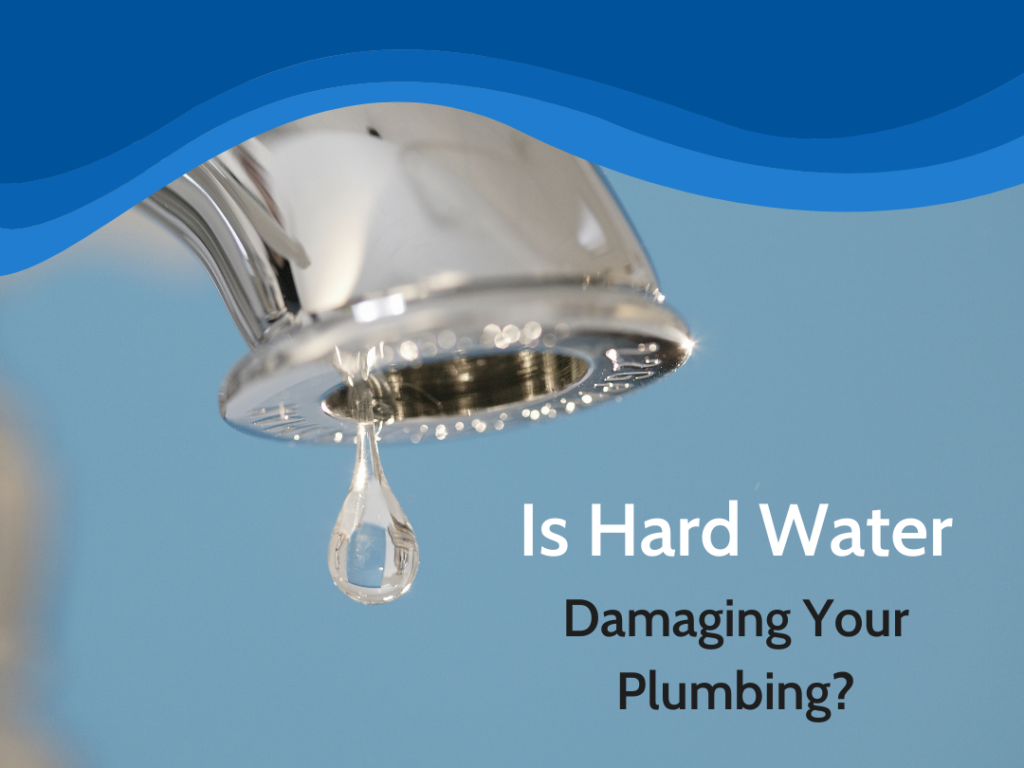Is Hard Water Damaging Your Plumbing?

If it’s not treated, hard water can do a number on your pipes and appliances. That’s because without removing hard minerals like calcium and magnesium, mineral buildup can occur, clogging your pipes and causing your appliances to break more often.
The costs associated with repairs and replacements due to hard water are significant. Investing in a home water softener can save you money, time and energy. Knowing a little bit about hard water and how to remove it can help you decide which products and solutions are best for your household’s demands.
What is hard water?
The term ‘hard water’ is used to describe a fresh water supply that contains a high amount of minerals, usually calcium and magnesium. It tends to leave a white, chalk-like stain on faucets which is a sign that you do not currently have soft water, but rather hard water. You may notice other things like dry skin, mineral buildup on shower walls or surfaces, dull clothes, stains on dishware and much more.
Is hard water dangerous?
Hard water is not dangerous to our health, but it can be problematic for other reasons. Some of the most common issues that hard water creates include:
- It reacts with cleaning products and creates a soap buildup and can wear down fixtures and appliances more quickly.
- Mineral buildup inside water heaters causes them to use more energy, thus costing you more money.
- Minerals react with soap to create soap scum, not suds, and can leave that film all over surfaces.
- Hard water can exacerbate skin issues like dry skin, psoriasis or eczema.
- Buildup of minerals on glasses and dishes, clothing and other fixtures can take their toll over time for sure. They can also cause embarrassment!
- Hard water shortens the life of water heaters and other water-using appliances.
How does hard water affect plumbing?
We often see customers concerned about their water heaters and their plumbing fixtures most. Why? The cost associated with repairing plumbing or replacing pipes or appliances is high. As we mentioned before, hard water contains minerals which will start to build up inside pipes, fixtures, drains or appliances over time. We don’t usually see it or notice it right away, until something is wrong.
When hard water is heated, a certain amount of water evaporates, causing the minerals suspended in it to precipitate. This solidified scale (a.k.a. limescale buildup) can then accumulate inside your pipes, water heater, washing machine and dishwasher. This is what we want to avoid!
Be on the lookout for:
- Reduced water flow in tubs, sinks, etc.
- Clogs
- Low water pressure
- Increased stress on pipes and fixtures
- High energy bills due to water heater operational costs
- Appliances requiring repairs or replacements
How can you prevent hard water from damaging plumbing?
First, we can test your water for mineral content and see just what you may need. Then, we’ll recommend the best water treatment product for your specific household needs. Our water softeners will remove hard minerals through the ion exchange process or you can get soft water delivered right to your home with our soft water delivery service. The end result is that these minerals are effectively removed from the water before it reaches your appliances and faucets. Ultimately, using softened water can help you avoid repairing appliances, water heaters or pipes and improve the efficiency and lifespan of your water-using appliances.
At Pacific Coast Water Systems of Fullerton, our water treatment experts can help you choose the right product for your household. What you need will depend on the hardness levels of your tap water, the size of your family, the amount of water you use each day and so on. We look forward to helping you protect the condition of your plumbing and avoid the damages that hard water can do. Plus, more aspects of your household will benefit, too, of course!


